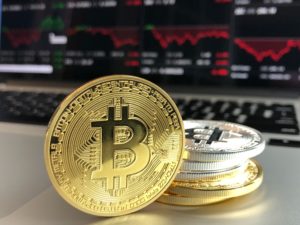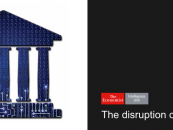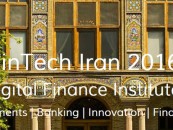
CNBC Exclusive Fintech and Bitcoin Interview with Apple Co-Founder Steve Wozniak
by Company Announcement June 6, 2018An exclusive CNBC interview with Steve Wozniak (SW), Apple Co-Founder, and CNBC’s Arjun Kharpal (AK) at Money 2020 in Amsterdam.
Fintechnews features here only the Fintech parts out of the interview and as expected Steve is a great businessman and also a great speaker, but honestly not really a Fintech expert as his answers are more or less general.
AK: Steve, thank you so much for joining. I want to kick off first with Fintech, since we are at Money2020, Fintech and money. What are the big trends for you in this space?
SW: You know the same trend’s being going on for kind of years, I mean you know companies came in like Square to make it easier for certain people to be involved with different procedures in the Fintech community – there was Android Pay then there was Apple Pay did it easy, Apple Pay is so wonderful, the most wonderful thing in my life.
Almost every single store I go to I just tap the watch and pay with a watch, no no hassle. And I think that’s changing how people want to do their retail purchasing use of money. When Apple Pay first came out I thought Apple oh my gosh was actually stepping into the banking area in a way, but I don’t understand that business as well to know what is a bank, what isn’t a bank. To me, a bank is protecting my assets and Apple doesn’t have that role. Apple, Apple Pay is more of a transition.
AK: And in line with that trend do you see companies like Apple and other large scaled technology firms actually starting to get more involved in financial services as we go through the years?
SW: Yes I do because we’re talking about huge companies that have huge savings wealth and all that. Ones like, you know, Google and Apple and many others you know absolutely want to find any way that they can extend their prowess, their monopolies into other markets even and becoming a bank rather than just a service centre for banks to operate is probably big and attractive financially, and you need something very huge for those companies.
Apple And Facebook Banking?
AK: And so companies like, for example, we’ve spoken about Amazon and Apple and Facebook, these are companies with millions, billions of users, and so do you see them actually getting into full-scale banking rather than just offering you know a payments system or something else?
SW: I I see them trying to get into full-scale banking. A little bit of me says I kind of prefer banking to go in a more of a decentralised fashion to where the users aren’t being at the mercy of the huge huge monopolies, since the way these companies often think, so I trust Apple the most. So there’s that whole idea of trust. Am I really getting service, you know, what I deserve out of these companies. You know you can even look to companies like Facebook and ask that question.
AK: You spoke about decentralisation, and that’s a key theme of course for bitcoin and cryptocurrencies, and as you look at bitcoin what kind of role do you see it playing in the future of finance, if any?

bitcoin image via Pexels.com
SW: Right, well I said decentralised and bitcoin is recognised for that. But I was intending my comment to be regarded to a lot of banks to choose from and not just, you know, two or three or four major major players like, the tech industry always kind of thinks that way.
As far as bitcoin I I think it’s kind of interesting – I’m I also believe so much strongly in mathematics and purity and science as defying the world, and when humans put their own little scales and say no this is how we want to think and not follow the math you get wrong answers in my mind.
So, bitcoin is mathematically defined, there’s a certain quantity of bitcoin, there’s a way that it’s distributed, that people who who keep copies of the ledger have a way to get paid a little. And it’s pure and there’s no no human running it. There’s no company running it and it’s just going and going and growing and growing and surviving. That to me says something about something that is natural and nature is more important than all our human conventions.
Worried about Bitcoin
AK: You previously mentioned that you bought bitcoin at around 700 hundred dollars and then then sold it all because you were kind of tired of watching the price movement. Have you bought any more bitcoin since then at a higher price?
SW: No, my point is I never invested in bitcoin. I was actually a little worried once – all of a sudden the price went up and I had a lot of money in bitcoin, I said wait a minute, I only wanted my bitcoin to experiment, to figure out how to buy things online, figure out how to go to other cities and find hotels and restaurants and places that would take bitcoin, even ATMs.
That was my purpose, so once, I sold all of my bitcoin except one, I kept one to experiment with now and I have two Ether and that’s it. So I am not an investor, I just, that was not my purpose at all and I don’t think oh I want to buy more I want to buy more. To some people I had recommended things based upon travels in the world over and over I see bitcoin, blockchain applications used in in Ethereum and sometimes I’ll recognise Ethereum. Ethereum you know is a platform and platforms tend to grow because they’ve got millions of people working on developing you know applications.
AK: Do you see bitcoin maintaining its dominance as you see the rise of these other platforms? The likes of Ether, or Ripple for example, and many of the other blockchain platforms that are coming to market.
SW: Yeah we’ve seen a hundred sort of bitcoin copies and some are faster, and some are a little-centralized control, some have other advantages. Only bitcoin is pure digital gold. And that’s the phrase that’s used and I totally buy into that. And all of the others tend to give up some of the aspects of bitcoin, for example, being totally decentralized and having no central control, that’s the first one to have to give up to try to have a business model. How the math on bitcoin was so correct that it still works.
I agree with Jack Dorsey
AK: So, so digital gold rather than currency because Jack Dorsey, the Twitter CEO, recently said he believes that bitcoin could become the global currency of the world in ten years. And so, is that something you buy in to or do you see it more as something people park their money into and leave rather than a transactional thing?
SW: I buy-in to what Jack Dorsey says – not that I necessarily believe it’s going to happen but because I want it to be that way. That is so pure thinking. Sometimes you wind up later on saying well I got sold, I could have been smarter.
AK: Do you have a view on, I know you said you’re kind of sick of watching the prices going up, but do you have a view on actually how much value you think bitcoin could have in the future in terms of price?
SW: Bitcoin is, because it’s regulated in its quantity, it’s down to supply and demand, and as more and more people want it and demand it. There was a hype going on for a period when it went up to twenty thousand and now it’s down to I don’t know where it is because I don’t ever track it, but so if the demand increases and it becomes more and more popular for more things and people start using it there is no extra supply. It’s limited. It’s fixed.
AK: And so, so for you…
SW: So in terms of dollars, you know currency, fiat currency of a country, yes bitcoin could will go up and up over time and it won’t happen, it may be sloppy at first and things that change that much in life take a long time to change they tend to go slowly. You know, we had we had a crash in the internet age and I see that going on with a lot of blockchain things, including bitcoin itself right now.
Are we in a Bubble?
AK: And are you worried by some of the fundamentals at the moment and actually if there is this bubble and we’ve seen some of that air come out of the market that could actually hamper the development of the technology?
SW: Well, I kind of disagree with that because it is, blockchain in all forms is so popular and being studied by so many people and in demand by so many companies to look into changing their business in the future. It may be long term. I do see it, as you said, as a bubble in the sense that there’s a huge amount of interest in it right now but things aren’t going to change that rapidly – that’s what the internet bubble was about.
AK: And looking at the underlying technology, blockchain, we’ve seen a lot of banks experimenting with it. We saw a lot of companies starting to try and dip their toes into that. How long do you feel it is until this becomes a widespread technology?
SW: I’m going to give it about ten to fifteen years – I would say the same as…Here was the internet, and the internet had promises of oh my gosh all your purchases online and your bank reservations, your airplane reservations, your bank accounts, everything was going to be online and the trouble is we had a big crash of all the companies who started off to compete for that.
And yet, here it is in 2018 – all of our life, everything we do with these third-party apps to do this today, oh my gosh what this saved me, it’s so wonderful of world it was the world we talked about then but it just doesn’t happen instantly because people have to have their mindset changed, culture and tradition and status quo and all the way things are doesn’t change that instantly when it’s that huge.





